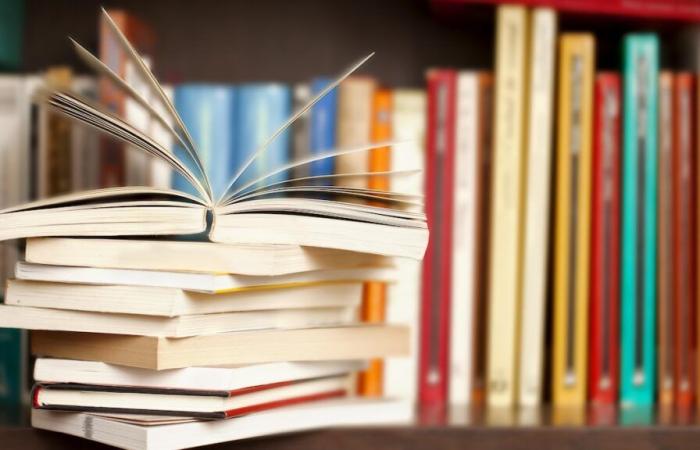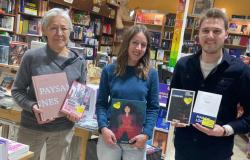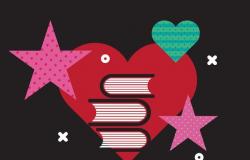The end of the year is always a good time to take stock, and literature too, because in each book, it is a sum of experiences that we are given to read and meditate on.
The months pass, the pages too, both bearers of joy and sorrow, madness and wisdom. Both bearers of life. A life that history, however, marks with its stigmata, as wars and conflicts, hatreds and injustices devour people, crush children and break humanity.
But hope remains in every man and in every book. Who can despair if he puts down the idols of fear, illusion and lies? So many idols that Books help us to tear down, because they carry within them, if we know how to read them, not the bright tomorrows, but the quiet days where happiness is combined with the virtue of being satisfied with what we understand life. There is an ancient author who devoted his work to this approach, I named Seneca, who demonstrates that the time to live is always the time to hope.
A hope that all books carry, because even desperate, absurd or tragic, their authors have chosen to write, to bear witness, to live and to make others live through their past experiences always combined with the present of each reader and sublimated by literature which then appears like these end-of-year illuminations, heralding joy and prosperity to come.
The days to come are then, as we now say, a PAL, a pile of books to read, delicious and pleasant, like these treats and other taste pleasures at the start of the year, poured out on the youngest child in the family placed in a large deep dish. The books that await us will, again this year, enlighten us, give us intelligence and beauty. As for those we have read, they will, over the 366 days of 2024, have accompanied us and made us better understand, like the green companion of Moses, the secrets of life.
Indeed, in each book, there is a lesson, and the first is that of putting words and therefore meaning on the world, even if it is “the last summer of reason”, because this, even ultimate , continues to speak and write.
Thus, the work of Tahar Djaout, whose last title we have just cited, or that of the brilliant personality who was the writer Boudaoud Amier, whose cruel loss the literary scene has just recorded, remain beyond the physical disappearance of authors who continue to live in each reader, marking other lives and other years to come. The future is thus in each book of the past, which is itself only the present of the one who opens it.
The years merge and renew themselves, and the stops, which mark the passage from one to the other, are the symbol of the continuity of life and human hope. A hope of which we are the bearers, as long as we climb to the top of the peaks, where the landscape of time spreads out more widely and where the panorama of human existence is offered more vastly and more significantly.
Books contribute to this rise to the heights, as long as the divine fire calls us to it, thanks to discernment and will, to free ourselves from the gangue of which social networks are the current avatar and go towards the universe of reading, that of reflection, critical sense, learning, empathy and creativity.
Oral literature, so often present, through tales and poems, in the traditional evenings which characterized the end periods and new years of yesteryear, also participated in this universe by instilling, in young and old, values in symbiosis with both the social and natural environment, through these “khorafat”, isefra and other popular qacidate, today decried and which, however, succeeded, in addition to religious precepts, to deposit in the individual, through their magical significance, which we will call “el niya”, respect for oneself, for others, for knowledge and nature, as well as the taste for effort, sacrifice and merit, today lost, despite the ostentatious sermons.
Thus abandoned, traditional literary structures have not been replaced in society by those of modern written literature. The magical scope of literature is in fact that of festivals, because literature is a celebration of the spirit, of conscience and of the struggles carried out or to be carried out by men, on an individual or social scale.
It is a celebration made of reunion with oneself and conviviality with others, which we discover through ideas, emotions and the great humanist hopes that universal holiday periods establish, despite the double discourse which tarnishes them through the sufferings that we pretend not to see on the very earth which saw the miraculous birth of the one, greetings to him, whose holy figure is evoked. Literature, among other things, raises awareness of the complexity of the meaning of a celebration, reminding us of our duties and responsibilities towards all those whose humanity we share, beyond our differences. Literature is thus the celebration of those deprived of celebration, opening the pages of a new book to be written, that of a humanity united in the hope of a better, fairer, freer and more united world.
Should we be content with these pious wishes, so often repeated? What to do? The question was first, we forget, the title of a novel by Chernyshevsky, before being taken up by Lenin and, otherwise, by the Zeddine Report, written by Aït Ahmed in December 1948. This question and so many others bring us back to the fact that literature, precisely, promotes reflection, analysis, vision and prospecting, to move forward. This would be the best wish: To move forward.
Par Ahmed Benzelikha
LAlgerian communications specialist, economist and journalist






